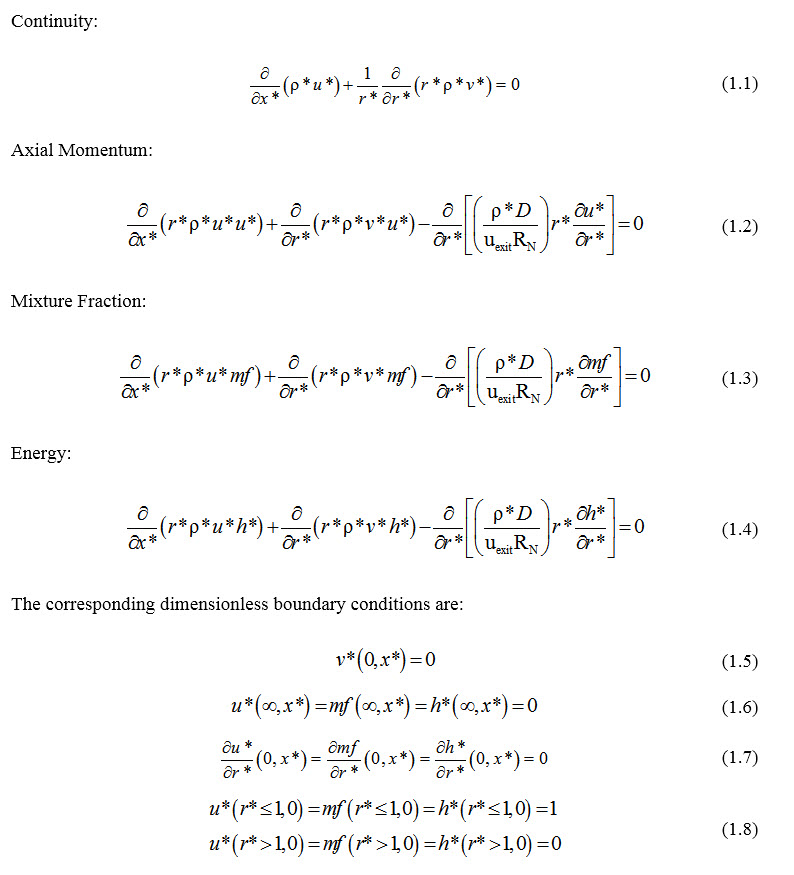Providing a whole detailed solution is out of the scope of this site, but asking for references is on-topic, so here is what I would suggest to get started:
There are many good books on finite difference methods (for instance, "Finite Difference Methods for Ordinary and Partial Differential Equations: Steady-State and Time-Dependent Problems" by LeVeque, or "Finite Difference Schemes & Partial Differential Equations" by Strikwerda) that would be adequate for the 1-D case, and that are good for a variety of science and engineering problems. Finite difference methods also appear in the combustion literature, as early codes used this approach in calculations for laminar flames. You could also use this approach for diffusion flames as well, even in multiple dimensions.
For books on finite volume methods, "Computational Methods for Fluid Dynamics" by Ferziger and Peric was most helpful for me, even though it doesn't cover chemical reaction at all. "Finite Volume Methods for Hyperbolic Problems" by LeVeque is a really good book, and covers the mathematics really well; from the standpoint of combustion, it essentially advocates operator splitting finite volume discretizations, whereas Ferziger and Peric will discuss fully implicit finite volume discretizations. Both approaches can be found in the literature, and in practice. Finite volume approaches tend to be used more in multi-dimensional combustion modeling, so if you want to look at 2-D or 3-D laminar flames, you're better off learning these techniques (you could also use them in 1-D).
After reading and taking notes on the references, I'd work out simple exercise problems to get comfortable with the numerical methods, including small systems of PDEs, and then move to your actual research problem. It's important not to rush this process, because you need to learn what sorts of bugs can arise when working with these numerical methods, and how to fix them, as well as where these numerical methods break down. If you just skip to your research problem, you won't have a good handle on diagnosing bugs you encounter (and there will be bugs; no one implements these methods perfectly the first time).
